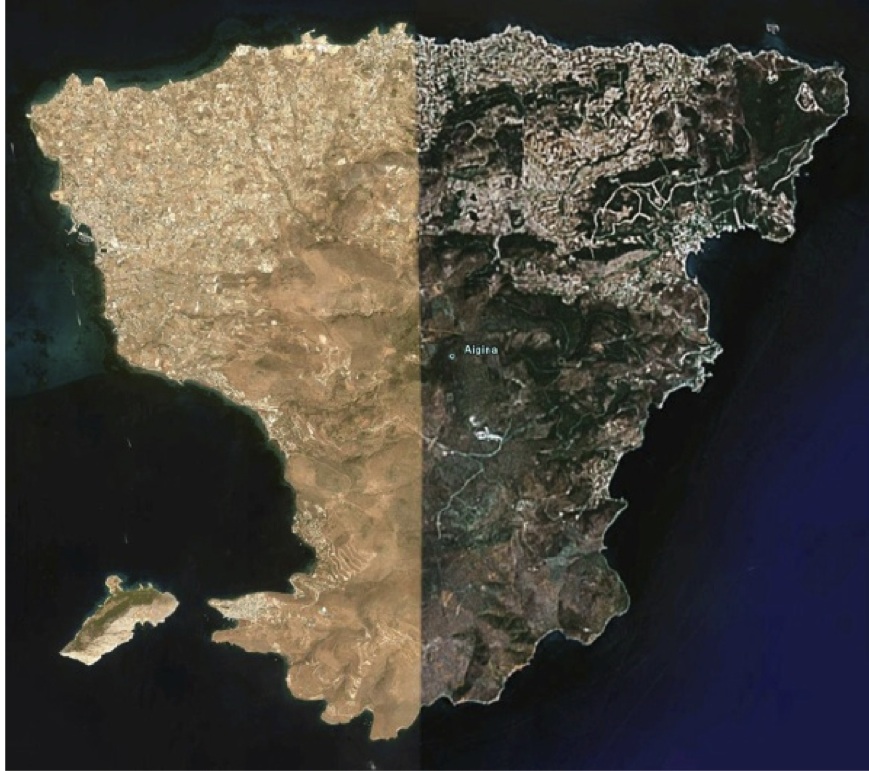Αποτύπωση και Αξιολόγηση Περιβαλλοντικής Κατάστασης Αίγινας
This study was conducted in the framework of A1 action of the project aiming to collect data and information for the main pilot area of AgroStrat, the Greek island Aegina.
All available sources fot data collection were used, e.g. studies, national and local inventories, websites, communication with local assocaitions, farmers and citizens.
SUMMARY
This study was conducted under the European Project LIFE11 ENV/GR/951 entitled "Sustainable strategies for the imrovement of seriously degraded agricultural areas-The example of Pistachia vera L. - Agrostrat» and aims to record the environmental status of Aegina island, Greece, as well as the social structure and the cultural heritage of the island.
The AgroStrat project (https://agrostrat), which is implemented by the Department of Soil Science Athens of the Hellenic Agricultural Organization DEMETER, the Institute for Mediterranean Studies of the Institute for Research and Technology and the Technical University of Crete, has as principal objective to develop sustainable strategies to protect soil and the agricultural environment, in general, in the Mediterranean areas, which are under desertification risk, are intensively cultivated and influenced by both human, and physical pressures.
Data collection was performed using all available sources (local/national authorities, institutions and associations, producers and citizens associations).
The data collected and presented refers to:
- Hydro and geo-morphological characteristics
- Meteorological data
- Main watercourses
- Population and local activities
- Cultivated areas, areas which are cultivated with pistachios, pistachios annual production, wastes generated by the processing of pistachios, other type of wastes in the area, management of agricultural and municipal waste
- Cultivation practices, use of pesticides, composting, recycling of agricultural waste, etc.
- Impact of disposal and waste management on soil quality and water systems, assessment of the environment quality at the disposal areas, the problems caused to the local communities, etc.
Since Aegina island is the main pilot area of the project, where the most of the activities will be implemented, the assessment and the subsequent use of the above information and data, has helped understanding of the problems, both specific (problems related to the project objectives) and broader (social, economic, cultural) and the development and implementation of the fireseen project activities.

